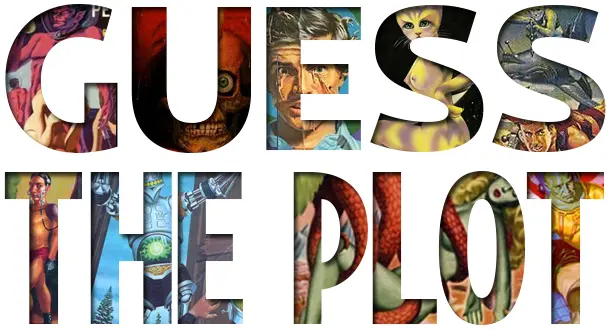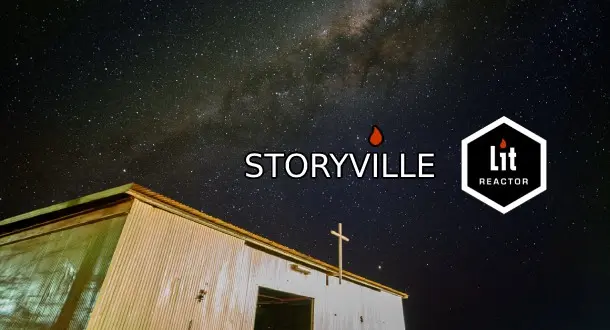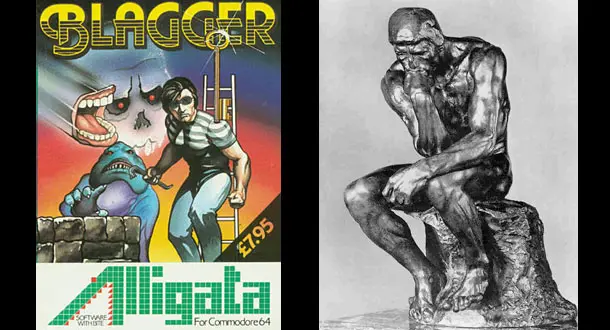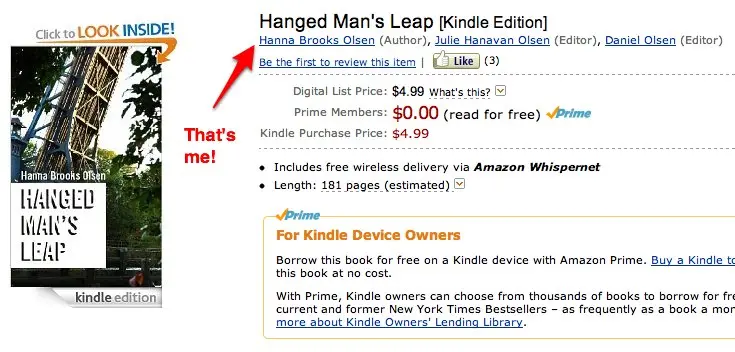Menu
Columns
Showing 3546 Columns
Showing 3546 Columns
May 7th, 2012

In the final week of his life, Mickey Spillane said to his wife Jane, “When I’m gone, there’ll be a treasure hunt around here. Take everything you find and give it to Max. He’ll know what to do.” Mickey had already called me, a week before, asking me to finish the final Mike Hammer novel, The Goliath Bone, if he was unable to.
Read Column →May 7th, 2012

Guys, we did it. We really did it. Last month, in Guess The Plot's debut, I offered up four classic science-fiction covers and asked for LitReactor's help figuring out what the novels inside could possibly be about. And you all didn't just show up, you killed it. Go back and check out the hilarious comment section in that link. Gold, people, hot bubbling gold! So I'm back, with just one cover this time. One amazing cover.
Read Column →May 4th, 2012

Writing about the White Whale has become my white whale.
Read Column →May 4th, 2012

And there came a day, a day unlike any other, when Earth’s mightiest heroes found themselves united against a common threat. On that day, the Avengers were born—to fight the foes no single superhero could withstand!
Read Column →May 3rd, 2012

I ought to start by defining Metaphoric Construct, but I’m hesitant to do so—namely, because I’m pretty sure I made the whole thing up. I’ve been bandying the term Metaphoric Construct about like an unfortunate hobo at a ritzy party lobs into his first game of badminton, using a dust-broom as a racquet, hoping no one will notice. But, whatever we call it, Metaphoric Construct is not only a consistent source of figurative-language, it’s the well we can depend on when it comes time to draw water to a thirsting story.
Read Column →May 3rd, 2012

LURID: vivid in shocking detail; sensational, horrible in savagery or violence, or, a twice-monthly guide to the merits of the kind of Bad Books you never want your co-workers to know you're reading.
Read Column →May 2nd, 2012

I wanted to do something a little different with this column. I wanted to let you inside my warped little mind as I break down one of my stories. I want to talk about the various aspects of what went into the story, why I did what I did, and show you the end result, and my thoughts on how it all turned out. I hope that by dissecting this story it may provide some insight into what I go through in the process of writing, editing, and finalizing a short story.
Read Column →May 2nd, 2012

To blag (v): to sound like you know what you’re talking about when you don’t The Blagger’s Guide to Literature (n): an invaluable resource for those who wish to blag about books without actually reading them.
Read Column →May 1st, 2012

Every month I'll be toiling in the dank, dark mines of literary obscurity, scouring the catalogues of every major publisher to bring the LitReactor faithful a few choice titles hitting the shelves. The following is a brief look at what's worth checking out in May. Full disclosure: unless otherwise noted, none of the below books have been reviewed by myself or other LitReactor staff. These are just a few recommendations based on publisher's notes and my own opinions. Without further ado:
Read Column →April 30th, 2012

A little over a month ago, I wrote about my big, exciting leap into self-publishing, in which I threw an old NaNoWriMo manuscript I had laying about, collecting digital dust in my Google docs, onto Amazon's Kindle Direct Publishing (KDP) platform.
Read Column →Submitting your manuscript?
Professional editors help your manuscript stand out for the right reasons.
